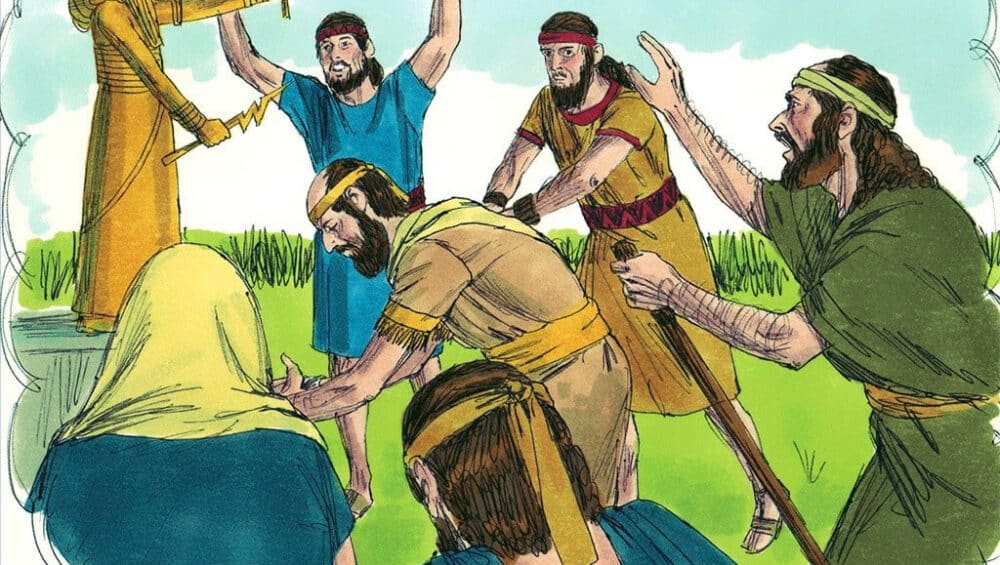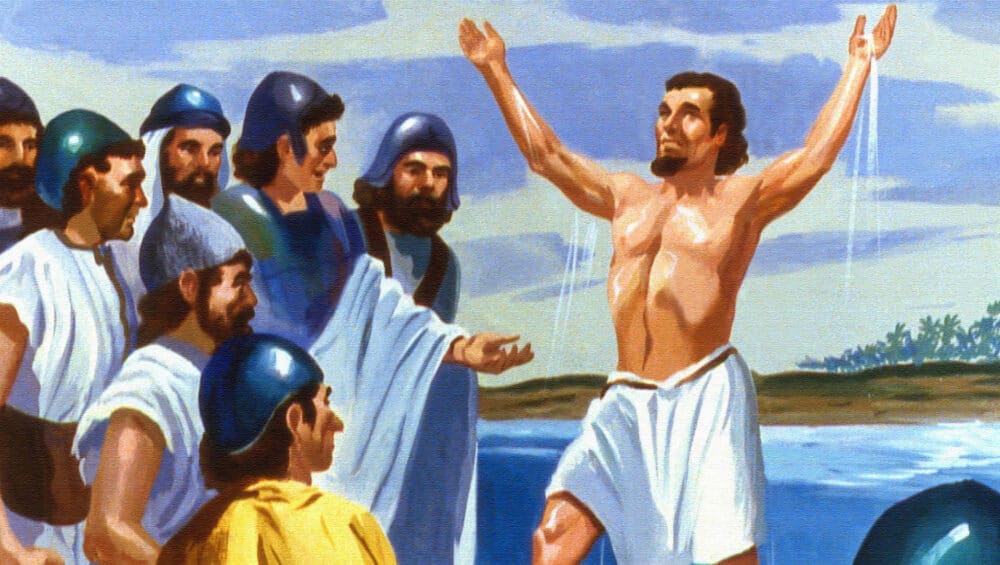Arabs for Christ / FreeBibleimages.org
Welcome to Livin’ Light’s Bible-In-A-Year challenge of discovering God’s love for us and His purpose for our lives. Here is the format for this great adventure: The daily reading assignment is posted at 5 a.m. After each day’s reading, Leigh An Coplin, the blog host, shares observations and poses questions about difficult passages to Rob Fields, who studied Christian Education at Asbury Seminary and currently teaches Biology in the Orlando area. To start from the beginning, click on 365 Bible Readings and scroll down to Day 1. The reading schedule is taken from The One Year Chronological Bible NLT.
Today’s Reading
— Hosea 2:14-8:14
(753 BC) Click here for a timeline of the entire Bible.
Questions & Observations
Q. (Hosea 2:14-23, Hosea 3:5): I can guess that this is a metaphorical story for Christ coming?
A. You could make that argument, but I think that it most likely is about the restored nation of Israel that will be established after the captivity.
O. (4:12): I see humor in this that God is accusing them of making an idol out of wood and thinking it can help them.
O. (5:15): God points out how Israel and Judah are predictable in their pattern of sin and punishment, followed by crying to God to bring them out of their despair.
Q. (6:10): God calls Israelites “prostitutes,” referring to their attitude toward Him. They should be like a bride and groom with God. It’s a sacred relationship and when the Israelites seek another God, it’s like cheating on a spouse — God being the offended spouse — prostituting themselves out to a false god — a prostitute is a false substitute for genuine love). I see more relationship comparisons. In a marriage, the relationship may not always provide everything we want. There are times that the romance is gone, sometimes for a reason, but we have to stick with it and wait for it to come back around. If we can’t wait and seek something else to fill that void, then the marriage will be ruined. Same with God. If we do not abide by his rules, then our life goes down the wrong path because we are not including Him in the relationship. We may seek other things, work, alcohol, possessions, luxury that get in the way. Then when we realize that the void cannot be filled with other things and return to God, He may wait for us to show repentance before He returns to our life.
A. The idea of Israel and Judah being required to “earn” its way back to a proper relationship with her Husband is a good one for what is going to happen.
Q. (8:4): I wondered if this was a problem. Because, starting with Saul, God told whom He wanted to be king. Then, after Solomon, we seldom heard God telling whom He wanted to be king. And, He led very few of the revolts to dethrone a king. The leaders were acting out their own desires. I doubted that all of the kings were David’s descendants. Were Judah’s kings all from David’s line?
A. Yes, as best I can tell. When God spoke of Himself being faithful to David’s line — via Solomon and Rehoboam — He really meant it.
Q. (8:13b): Is returning to Egypt a metaphor, like they will be in the same despair as they were in Egypt?
A. The only part that is a metaphor is the location. The people will once again be slaves to another nation (not Assyria), and will have to begin all over again with God. But God knows what He is doing here, and the results will be interesting to say that least.
Video: Check out the Bible Project’s summary of Hosea, https://bibleproject.com/guides/book-of-hosea/#:~:text=It%20reveals%20deep%20truths%20about,message%20to%20all%20future%20generations.
Spread the Word! Christian shirts get noticed. Check out these conversation starters: https://livinlight.org/shop/
Tomorrow’s reading: Hosea 9-14















